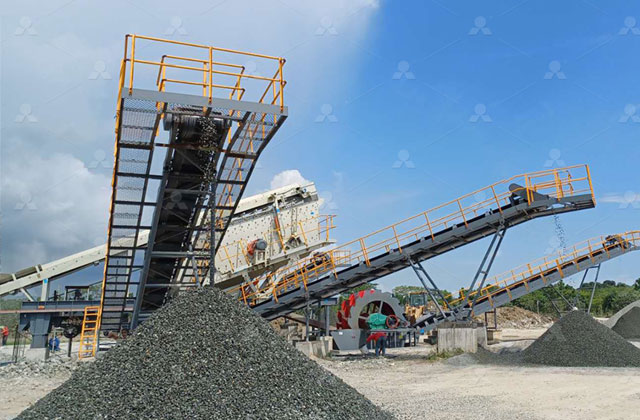Introduction
In the world of construction and mining, the demand for high-quality aggregates is ever-increasing. To meet this demand efficiently, portable crushing plants have become a vital component in aggregate production. These mobile units offer flexibility, cost-effectiveness, and high productivity, making them a preferred choice for many operations.

Advantages of Portable Crushing Plants
- Mobility and Flexibility: One of the primary advantages of portable crushing plants is their mobility. Unlike stationary plants, portable units can be transported quickly between job sites. This is particularly beneficial for operations in remote or challenging locations where establishing a permanent facility may be impractical. The ability to set up and dismantle quickly allows for rapid deployment and reduced downtime, ensuring continuous productivity.
- Compact Design: Portable crushing plants are designed with a compact footprint, which allows them to be used in confined spaces. This compactness also facilitates easier transportation on flatbed trucks or trailers. Despite their smaller size, these plants do not compromise on performance. They are equipped with powerful crushers, screens, and conveyors that can handle a wide range of materials.
- Efficiency and Performance: Modern portable crushing plants are built with advanced technology to maximize efficiency. They typically feature high-capacity crushers and screens that can process large volumes of material with high precision. Many models come with integrated control systems that allow operators to monitor and adjust settings in real-time, ensuring optimal performance and reducing waste.
- Versatility: Portable crushing plants are highly versatile and can be used to process various types of materials, including rock, concrete, asphalt, and more. This versatility is crucial for aggregate production, as it allows for the production of different types of aggregates, such as crushed stone, sand, and gravel. The ability to produce multiple aggregate types from a single plant reduces the need for multiple pieces of equipment and streamlines operations.
Components of Portable Crushing Plants
- Crusher Unit: The core component of a portable crushing plant is the crusher itself. Different types of crushers, such as jaw crushers, cone crushers, and impact crushers, are used depending on the desired end product. Each type has its unique advantages and is selected based on the specific requirements of the aggregate production process.
- Screening System: Integrated screening systems are crucial for separating crushed materials into different sizes. This ensures that the final product meets the required specifications and reduces the need for additional processing.
- Conveying System: Conveyors are used to move materials between the different stages of the crushing process. Portable plants often include built-in conveyor systems, which streamline the workflow and minimize material handling.
Applications
Portable crushing plants are versatile and can be used in a variety of applications, including:
- Construction and Road Building: They produce high-quality aggregates for concrete, asphalt, and road base materials.
- Mining: Portable crushers can be used for primary and secondary crushing of ore and waste rock.
- Recycling: They are ideal for recycling concrete and asphalt, reducing waste and lowering material costs.
Portable crushing plants are an invaluable asset in the aggregate production industry. Their mobility, efficiency, versatility, and environmental benefits make them a preferred choice for many operations. As technology continues to advance, these plants are likely to become even more efficient and effective, further solidifying their role in modern construction and mining.
